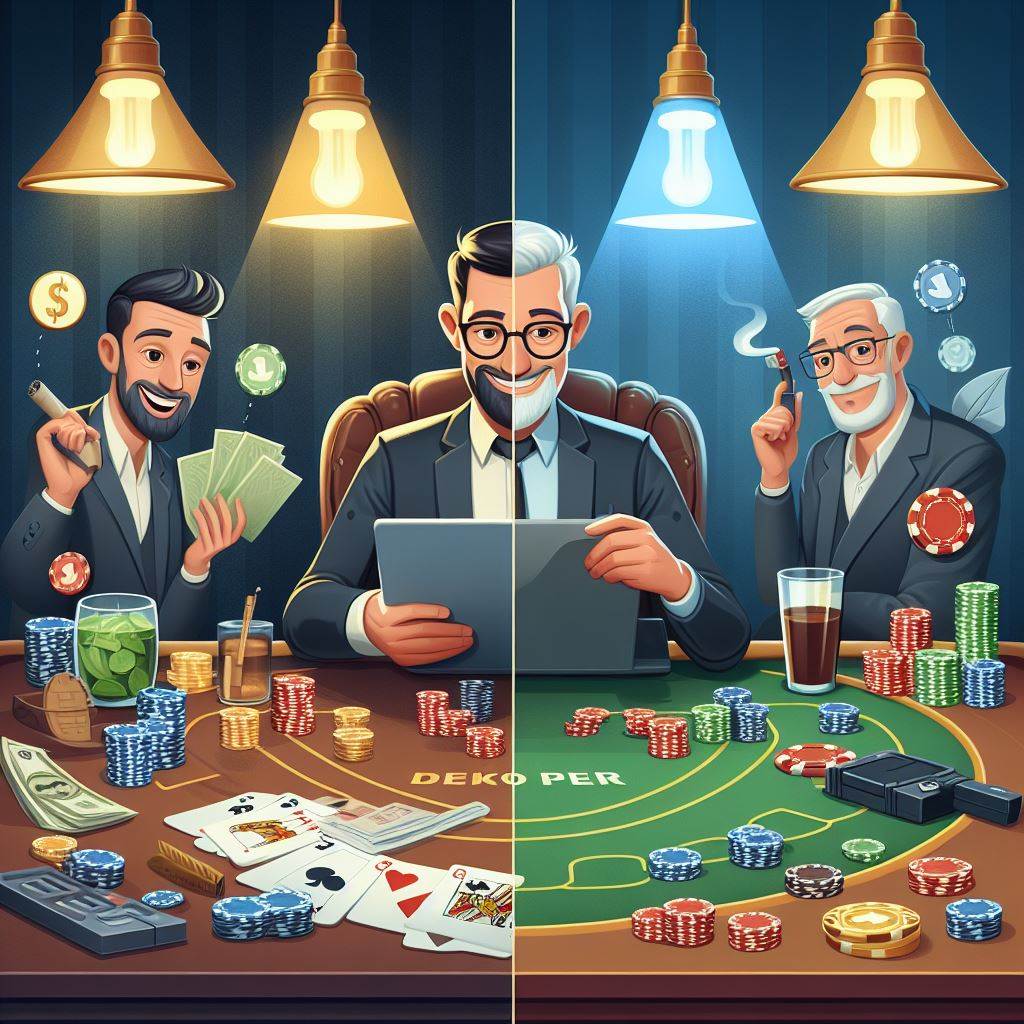Online vs. Casino Poker: Comparing Experiences and Strategies

Poker, a game of skill, psychology, and a little bit of luck, can be played in numerous environments, each offering a unique atmosphere and requiring different strategies. Two of the most popular arenas for poker are online platforms and traditional casino poker rooms. This article delves into the comparative experiences and strategies associated with each, helping players to navigate the nuances and optimize their game irrespective of the setting.
The Setting: Virtual vs. Physical Comparing Experiences and Strategies
Online Poker: Online poker has revolutionized the way the game is played. Accessible from the comfort of one’s home, it allows players to engage in multiple tables simultaneously and participate in a variety of game formats at any time of the day. This convenience and flexibility are unparalleled. The anonymity of playing behind a screen can also help beginners feel less intimidated and more willing to participate.
Casino Poker: Playing poker in a casino, however, offers an immersive experience that online platforms can’t replicate. The tactile sensation of chips, the sound of cards shuffling, and the ability to observe opponents directly add layers of enjoyment and complexity. Social interactions and the ability to read body language and poker tells play significant roles in the strategies employed at casino tables.
Strategies and Skills Comparing Experiences and Strategies
Online Strategies: Online poker requires a more statistical and analytical approach. With the aid of various software tools, players can track their own play and that of their opponents, gaining insights into tendencies and patterns. This data-driven approach helps in making informed decisions. Moreover, the pace of online poker is much faster, which necessitates quick thinking and efficient bankroll management.
Casino Strategies: In contrast, casino poker emphasizes psychological strategies. Players benefit from observing physical tells – twitches, smiles, glances – and manipulating their own table image to influence the game. The slower pace of play allows for more profound tactical planning between hands. Social interactions can also be leveraged to one’s advantage, as engaging with others might reveal additional information about their gameplay.
Adaptability and Learning Comparing Experiences and Strategies
From Online to Casino: Players transitioning from online to casino venues might find the pace frustratingly slow and may struggle with the lack of information that they normally receive from software aids. However, the skills gained from online play, such as managing multiple tables or making quick mathematical calculations, are invaluable. The key is to adapt these skills to incorporate psychological insights gained from direct interactions.
From Casino to Online: Conversely, casino players moving online must adjust to the absence of physical tells and the faster pace of play. They need to become more reliant on statistical data and possibly use software to keep up with the multiple playing dimensions. Mastering the art of effective online bankroll management, given the speed and volume of games, is crucial.
Conclusion
Both online and casino poker offer unique challenges and rewards. While online poker appeals to those who favor convenience and a data-driven approach, casino poker is ideal for players who thrive on personal interactions and psychological gameplay. Ultimately, the best poker players are often those who are versatile and adaptable, able to switch between virtual and physical games with ease, taking the best from both worlds to refine their overall strategy.


